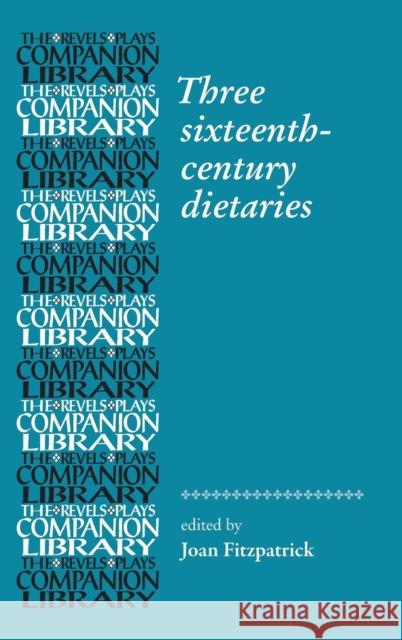Three Sixteenth-Century Dietaries » książka
Three Sixteenth-Century Dietaries
ISBN-13: 9780719081132 / Angielski / Twarda / 2017 / 344 str.
Three Sixteenth-Century Dietaries
ISBN-13: 9780719081132 / Angielski / Twarda / 2017 / 344 str.
(netto: 441,00 VAT: 5%)
Najniższa cena z 30 dni: 458,33
ok. 30 dni roboczych.
Darmowa dostawa!
Early modern dietaries are prose texts recommending the best way to maintain physical and psychological well-being. This modern-spelling edition is the first to make available to a modern audience three of the most important dietaries from the sixteenth century; Thomas Elyot's Castle of Health, Andrew Boorde's Compendious Regiment, and William Bullein's Government of Health, all popular and influential works that were typical of the genre. These works are here introduced, contextualized and, most importantly, edited for the first time, making them more readily available to scholars and students of Renaissance culture.
Dietaries illuminate attitudes to food and diet in the period as well as ideas about how lifestyle impacts upon physical and psychological health, for example how much and what type of exercise one should take and how to sleep (for how long and in what position). Introductory material explores the dietary genre, its relationship to humanism, humoral theory, and the wide range of authorities with which the dietary authors engaged. The volume also provides an introduction to each of the works, including a biography of the author and a discussion of what is distinct about their book, as well as an examination of the bibliographical and publication history of their dietary. In addition, the reader will benefit from comprehensive explanatory notes and appendices that provide prefaces to earlier editions, a glossary of words commonly used, and a list of authorities and works cited or alluded to in the dietaries.
Three sixteenth-century dietaries provides a valuable contribution to our understanding of early modern culture and will be of interest to students and scholars of British literary and cultural history.











